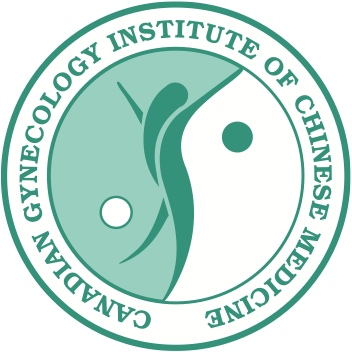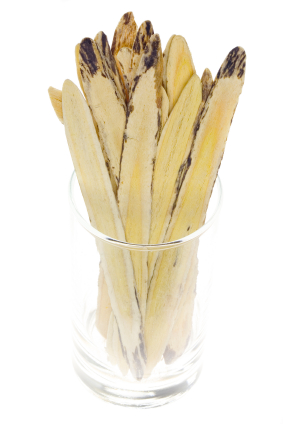There has been article after article written on certain foods and how they can be beneficial for health. But it is important to always remember BALANCE! To every action and benefit there is a reaction and a caution. Before you jump on any bandwagon, please know your body and look deeper. Over the next few weeks we will be taking an in-depth look at the benefits and cautions to some common foods and supplements. This week: astragalus!
Common Name: Astragalus
Pharmaceutical Name: Astragali Radix
English Variants: Astragalus Root, Milk-Vetch Root
Chinese Name: Huang Qi
TCM Classifications:
- Category: tonify Qi
- Meridian Tropism: Lung, Spleen
- Taste: Sweet
- Temperature: Slightly Warm
TCM Functions & Indications
- Tonifies Qi & Blood: post-partum fever, severe loss of blood, lack of appetite, fatigue, diarrhea
- Raises Yang Qi: Qi failing to contain blood (easy bleeding and bruising), sinking and collapse of Qi (prolapse: stomach, uterus, anus, bladder, etc., varicose veins)
- Boosts Protective Qi (immune system) & secures the exterior: spontaneous or sweating, frequent colds, shortness of breath
- Reduces Edema: superficial edema with reduced urination
- Promotes discharge of pus and generates flesh: chronic ulcerations, sores due to deficiency that either have trouble forming pus, or have formed pus but are not draining or healing well.
Western Medicine Uses: anti-inflammatory, anxiolytic, cardiotonic, detoxification, diuretic, immunostimulant, metabolic.
Also, astragalus has recently been used after treatment with chemotherapy and radiation to restore the body.
Who should TAKE Astragalus?
Astragalus is an herb that not only is great at giving energy, it also LIFTS the energy up. There is a concept in Chinese Medicine called Spleen* Qi Sinking, and the basic premis is that the body does not have enough energy to hold up organs such as the stomach, uterus, bladder, anus, etc. and thus they fall/sink/prolapse. Varicose veins and hemorrhoids fall under the same conceptual category. So if you have signs of prolapse along with symptoms of low energy, lethargy, poor appetite, or weakness of the limbs, this herb could be for you.
In Chinese Medicine our immune system is known as Protective Qi- or Wei Qi. Wei Qi is largely supported by our Spleen* Qi. If there is a deficiency in Spleen* Qi, the protective Qi will also be deficient leading to an increased risk of catching frequent colds. Astragalus is one of the best herbs, along with Ginseng/Ren Shen to help tonify and supplement Qi.
Who should AVOID Astragalus?
There are two main groups of people that should avoid taking Astragalus.
- People who have an auto-immune disease or those who are taking drugs that suppress the immune system. The herb has the complete opposite effect and would thus exacerbate an auto-immune disorder or counteract the medications to suppress the immune system. One of the most common groups of drugs that suppress the immune system are corticosteroids. Some auto-immune diseases include: rheumatoid arthritis, lupus, celiac disease, multiple sclerosis, Crohn’s disease, psoriasis, and there are many more.
- People, especially women, who have RISING signs: hot flashes, night sweating, and those who anger or get irritable quickly and easily. Because Astragalus has a rising nature as well, this can exacerbate those symptoms.
- While this herb is good at PREVENTING the common cold, it is generally not suitable to TREAT the common cold. If you have already developed a cold, stop taking this herb until the cold has completely gone.
If in doubt, please contact your R.TCMP or Doctor to see if Astragalus is safe for you.
Huang Qi- or Astragalus is one of the best herbs for a struggling body system. It is strong, it lifts things up, and helps boost the immune system. But at the same time it can make hot flashes and night sweats worse, and it can have unwanted effects on a hypersensitive immune system. If you have these conditions, it would be best to speak with a Doctor or TCM Practitioner to see if Astragalus is safe for you to take, and if not, which other herbs might be beneficial instead.
For more information or if you have any questions, please feel free to contact us!
Caroline Prodoehl, R.Ac, T.TCMP
*Spleen Qi:
There are many different kinds of Qi: protective Qi, nutritive Qi, evil Qi, organ Qi, etc., and they all play in an intricate and elaborate balancing act which keeps our bodies alive and functioning.
Spleen Qi is often the more specific name of Qi. Qi is a general term and difficult to define but for our purposes it can basically be described as ‘life force’ or ‘the spark of life.’ By saying ‘Spleen Qi’ we are talking about the making and process of Qi – so I’d like to explain the Spleen a little bit which will help to understand why.
The Spleen in Chinese Medicine is the organ responsible for digestion. The Stomach, which works together with the Spleen is known more as the receptacle for the food rather than the organ of digestion. The Spleen breaks down what we eat and makes the nutrients accessible for the body, so what we eat essentially gets transformed into our functional body: our blood, muscles, bones, organs, cellular and extracellular fluids, immune system, nervous system, etc. In short, we are what we eat.
If our digestion is somehow impaired, it is known as a ‘Qi Deficiency/Spleen Qi Deficiency’. This means the body is not digesting properly, thus the body is not getting the nourishment it needs, thus there are symptoms/illness. If there is a general Qi deficiency (Spleen Qi Deficiency), then the other categories of Qi are also not nourished, including our protective Qi. With a Spleen Qi deficiency, these symptoms often include, tiredness, lethargy, poor appetite, and depending on the pathogenesis and other organs involved, this can cause bloating, indigestion, gas, allergies, asthma, decreased immune system, and a whole host of other problems.
I have two internal medicine text books at home. Both are the exact same size: huge. The one text book covers pathologies of the the Lungs, Heart, Kidney and Liver, the other text book that is the exact same size covers that pathologies of the Spleen alone. Chinese Medicine recognizes that with difficult and incomplete digestion the whole body is affected. With that said…
Eat Happy and Eat Healthy!
Eating for Deficient Constitutions
Eating for Excess Constitutions
References:
TCM ClinicAid iPhone App
http://altmedicine.about.com/od/herbsupplementguide/a/Astragalus.htm
http://umm.edu/health/medical/altmed/herb/astragalus
If you would like to get automatic blog updates, “Like” us on Facebook, or subscribe to our newsletter (below).

